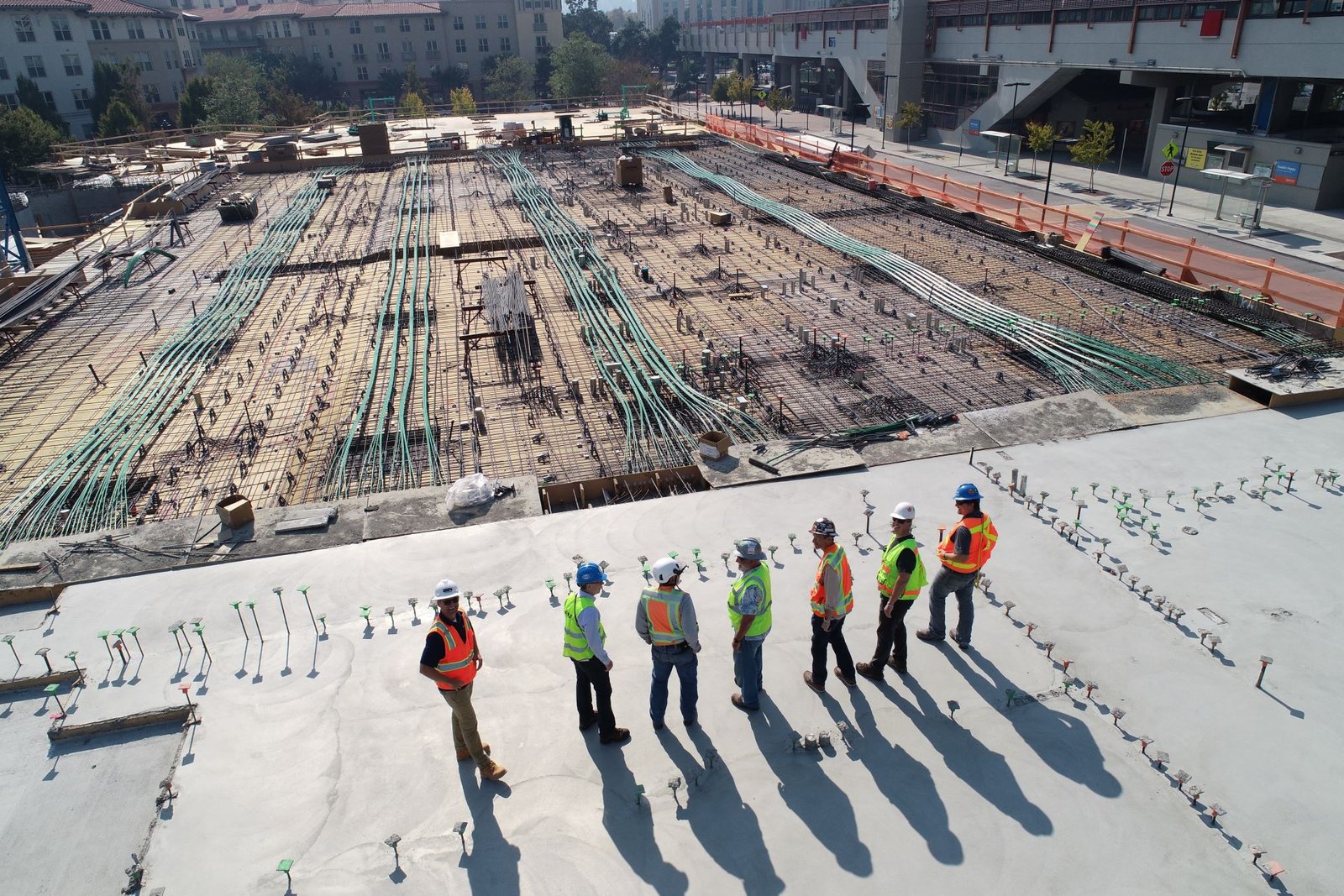In the rapidly evolving landscape of technology, the fusion of human expertise with Artificial Intelligence (AI) is revolutionizing various sectors, including engineering.
This integration is not just enhancing existing practices but is also paving the way for unprecedented innovations. The synergy between humans and AI is particularly transformative in engineering, a field that inherently thrives on precision, efficiency, and innovation.
This dynamic collaboration is redefining problem-solving methodologies, design processes, and operational efficiencies across all types of engineers, from civil to software, mechanical to chemical, ensuring a profound impact on how we understand and apply engineering principles.
Human-AI Collaboration In Engineering
The collaboration between humans and AI in engineering is an evolving narrative of mutual enhancement, where the intuitive, creative human mind meets the precision and speed of AI.
This partnership is reshaping the engineering landscape in various ways.
Enhancing Design And Creativity
In the realm of design and creativity, AI aids engineers by offering data-driven insights and predictive models.
It enables engineers to simulate scenarios and visualize the outcomes of their designs before physical models are built.
For instance, AI algorithms can predict structural stress points in a building design, which helps civil engineers in creating safer, more efficient structures.
Similarly, in fields like automotive engineering, AI’s ability to process vast datasets expedites the design process, allowing for more innovative and effective solutions.
Improving Efficiency And Precision
AI’s impact on efficiency and precision is particularly notable in manufacturing and industrial engineering.
Robotics and AI-driven automation have revolutionized production lines, enhancing speed, precision, and safety.
These technologies allow for continuous operation with minimal downtime, leading to increased productivity.
In software engineering, AI algorithms can analyze code for errors or inefficiencies, significantly reducing debugging time and improving the overall quality of the software.
Facilitating Sustainable Solutions
Sustainability is a growing concern in all types of engineering.
AI is instrumental in developing sustainable solutions by optimizing resource utilization and reducing waste. In environmental engineering, AI models can predict pollution patterns and suggest mitigation strategies.
Renewable energy systems, like solar and wind power, benefit from AI’s ability to forecast weather patterns and optimize energy production.
This collaboration not only leads to more sustainable engineering practices but also promotes environmental stewardship.
The Future Of Engineering With AI Integration
The integration of AI into the engineering sector is not just a temporary phase but a fundamental shift towards a more advanced and efficient future.
This paradigm shift is anticipated to bring forth significant changes in various aspects of engineering, influencing education, job dynamics, and ethical considerations.
Transforming Engineering Education
The incorporation of AI in engineering demands a transformation in educational approaches.
Educational institutions are increasingly blending AI concepts into their curricula, equipping future engineers with the skills to work alongside AI technologies.
This involves not only teaching the technical aspects of AI but also fostering an understanding of how AI can be applied to solve complex engineering problems.
For example, courses in machine learning and data analytics are becoming integral in civil, mechanical, and electrical engineering programs, preparing students for a workforce where AI is a critical tool.
Reshaping Career Dynamics
AI’s integration into engineering is also reshaping career dynamics in the field. While some fear job displacement due to automation, the reality is more nuanced.
AI is creating new roles and opportunities for engineers.
Tasks that are repetitive or require massive data processing are increasingly being handled by AI, allowing engineers to focus on more creative and complex problem-solving aspects.
This shift is leading to a demand for engineers who are adept in AI and machine learning, opening up new career paths and specializations.
Navigating Ethical And Safety Challenges
As AI becomes more embedded in engineering processes, it brings forth ethical and safety challenges that need careful navigation.
Engineers must be cognizant of the ethical implications of AI, particularly in areas like data privacy and bias in AI algorithms.
Safety is another critical aspect, especially in fields like biomedical or aerospace engineering, where AI decisions can have life-altering consequences.
Developing robust AI systems that are transparent, fair, and secure is a vital responsibility for engineers, necessitating ongoing collaboration between ethicists, engineers, and AI specialists.
Navigating Challenges And Opportunities In AI-Enhanced Engineering
The integration of AI in engineering presents a landscape filled with both challenges and opportunities.
As engineers and industries adapt to this new era, they encounter various hurdles that need to be addressed to fully harness the potential of AI.
Simultaneously, these challenges pave the way for groundbreaking opportunities, redefining the essence of engineering.
Addressing Data Security And Privacy Concerns
One of the paramount challenges in the AI-driven engineering world is ensuring data security and privacy.
As engineering projects become increasingly reliant on big data and AI algorithms, the risk of data breaches and misuse escalates.
Industries are thus investing in advanced cybersecurity measures to protect sensitive data. Engineers are also being trained to handle data ethically, ensuring compliance with evolving data protection regulations.
This focus on security is not just about safeguarding information but also about maintaining public trust in AI-driven technologies.
Bridging The Skills Gap
The rapid adoption of AI in engineering has resulted in a skills gap, as the workforce struggles to keep pace with technological advancements.
To address this, continuous learning and upskilling have become crucial. Companies are investing in training programs to equip their engineers with AI-related skills.
Furthermore, collaboration between academia and industry is intensifying, aiming to produce graduates who are well-versed in AI applications.
This gap presents an opportunity for engineers to diversify their skills and for educational institutions to innovate in their teaching methodologies.
Promoting Interdisciplinary Collaboration
AI’s role in engineering underscores the need for interdisciplinary collaboration. Complex engineering challenges often require a combination of expertise from different fields.
AI specialists, data scientists, and engineers are increasingly working together, breaking down silos and fostering a culture of collaborative innovation.
This interdisciplinary approach not only enhances problem-solving capabilities but also encourages a more holistic understanding of the implications of AI in engineering.
Key Takeaway
The journey of integrating AI into engineering is a path of continuous learning and adaptation. It presents an array of challenges, from data security to the need for interdisciplinary collaboration, but each challenge is an opportunity to innovate and grow.
As we move forward, the fusion of human ingenuity with AI’s capabilities will undoubtedly lead to more sustainable, efficient, and groundbreaking engineering solutions.
This evolution is not just transforming the field of engineering; it is reshaping our world, creating a future where the possibilities are as limitless as our imagination.





